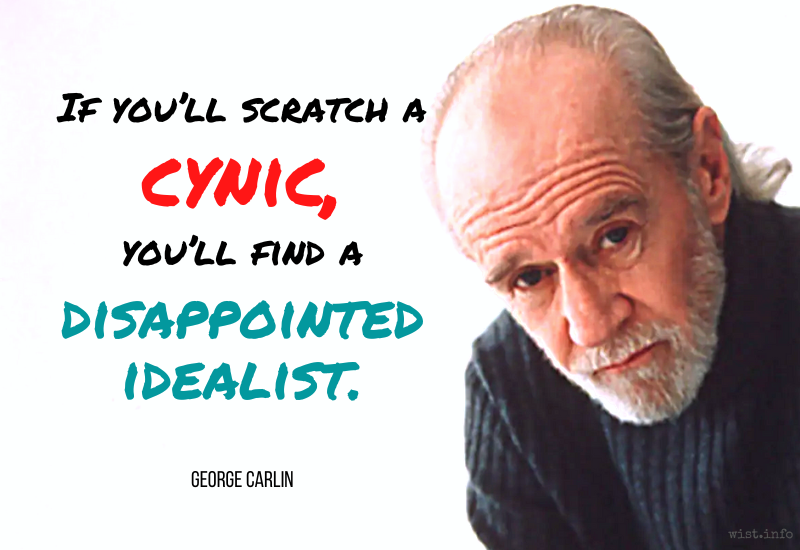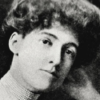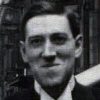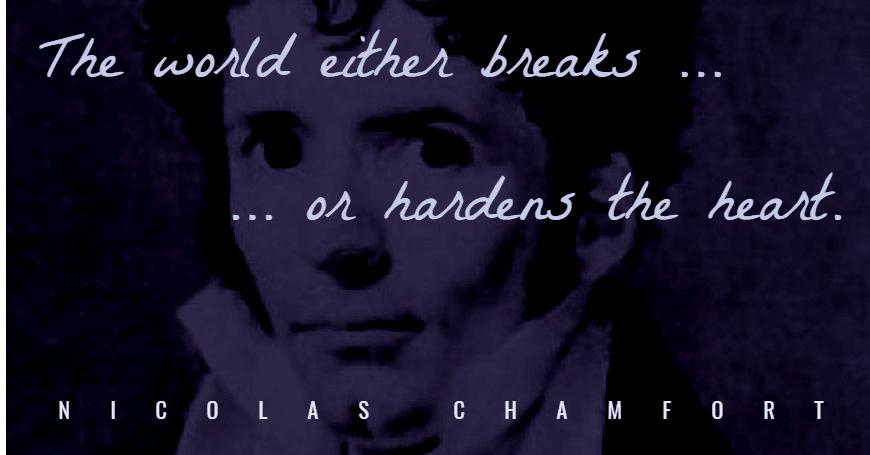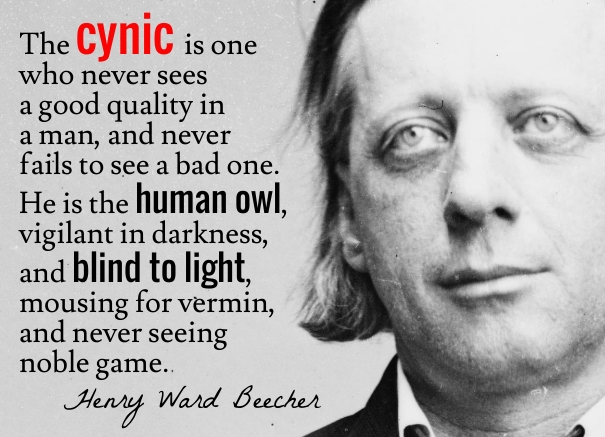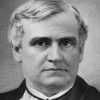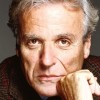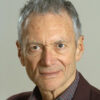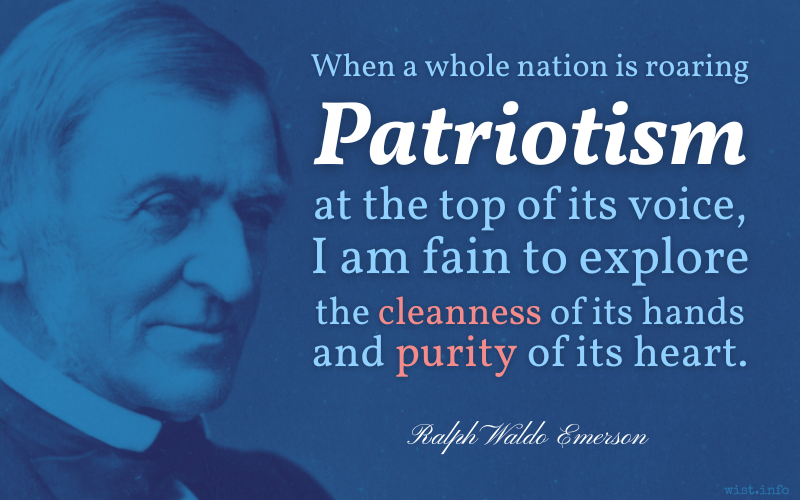You should swallow a toad every morning, when going out into high society, so as to encounter nothing more disgusting during the day.
[Faudrait avaler un crapaud tous les matins, pour ne trouver plus rien de dégoûtant le reste de la journée, quand on devait la passer dans le monde.]Nicolas Chamfort (1741-1794) French writer, epigrammist (b. Nicolas-Sébastien Roch)
Products of Perfected Civilization [Produits de la Civilisation Perfectionnée], Part 2 “Characters and Anecdotes [Caractères et Anecdotes],” ch. 5 (1795) [tr. Dusinberre (1992)]
(Source)
Though usually attributed directly to Chamfort, he credits the phrase to a M. de Lassay.
Fragment 863. (Source (French)). Alternate translations:
It would be necessary to swallow a toad every morning, in order not to find anything disgusting the rest of the day, when one has to spend it in the world.
[tr. Matthews (1877)]
One must swallow a toad every morning, when one has to go out in the world, so as not to find anything more disgusting during the day.
[tr. Merwin (1969)]
Swallow a toad in the morning and you will encounter nothing more disgusting the rest of the day.
[Source]
Quotations about:
cynicism
Note not all quotations have been tagged, so Search may find additional quotes on this topic.
Cynical is the name we give those we fear may be laughing at us.
Stephen Fry (b. 1957) British actor, writer, comedian
The Hippopotamus, ch. 4, sec. 3 [Ted] (2014)
(Source)
Sometimes when a person sees the roguery of poor people and the thievery of people in high positions, he is tempted to regard society as a forest full of robbers, the most dangerous of which are the policemen that are set up to stop the others.
[En voyant quelquefois les friponneries des petits et les brigandages des hommes en place, on est tenté de regarder la société comme un bois rempli de voleurs, dont les plus dangereux sont les archers, préposés pour arrêter les autres.]
Nicolas Chamfort (1741-1794) French writer, epigrammist (b. Nicolas-Sébastien Roch)
Products of Perfected Civilization [Produits de la Civilisation Perfectionée], Part 1 “Maxims and Thoughts [Maximes et Pensées],” ch. 3, ¶ 198 (1795) [tr. Siniscalchi (1994)]
(Source)
(Source (French)). Alternate translations:
Seeing the rogueries of little men and the extortions of the great in office, one is tempted to look upon Society as a wood infested by robbers, the most dangerous being the constables sent to arrest the others.
[tr. Mathers (1926)]
At times, seeing the petty thieveries of the petty, and the robberies of those in office, one is tempted to regard society as a wood full of thieves, of which the most dangerous are the officers set there to arrest the others.
[tr. Merwin (1969)]
Sometimes, when one observes the rogueries perpetuated by petty people and the graft committed by men in office, one is tempted to think of society as a wood infested by thieves, of which the most dangerous are the archers, posted to prevent the others from escaping.
[tr. Pearson (1973)]
There are times when, seeing the nasty tricks people get up to, the gross frauds of high officers, you're tempted to think that you're in a wood infested by thieves, amongst whom the most dangerous are the police, whose purpose is supposed to be that of arresting them.
[tr. Parmée (2003), ¶ 152]
Maturity is a high price to pay for growing up.
Tom Stoppard (b. 1937) Czech-English playwright and screenwriter
Where Are They Now? [Gale] (1970)
(Source)
The line in the play -- originally broadcast on BBC Radio 3 -- was based on an answer Stoppard himself gave in an interview by Peter Evans, reprinted in David Bailey and Peter Evans, Goodbye Baby and Amen: A Saraband for the Sixties (1969):
It is a very immature thing to worry about one’s stinking youth, but I don’t care: I think age is a very high price to pay for maturity.
There are few people whom I really love, and still fewer of whom I think well. The more I see of the world, the more am I dissatisfied with it; and every day confirms my belief of the inconsistency of all human characters, and of the little dependence that can be placed on the appearance of merit or sense.
To everything there is a bright side and a dark side; and I hold it to be unwise, unphilosophic, unkind to others, and unhealthy for one’s own soul, to form the habit of looking on the dark side.
Lydia Maria Child (1802-1880) American abolitionist, activist, journalist, suffragist
Letter to Lucy Osgood (1865)
(Source)
Blessed is he who expects nothing for he shall never be disappointed.
Alexander Pope (1688-1744) English poet
Letter to John Gay (16 Oct 1727)
(Source)
Pope referred to this, in the letter, as "The Ninth Beatitude." He may have used the phrase the previous year in a letter to William Fortescue (the letter is not given a date, but is grouped with a letter from John Gay to Fortescue of 23 Sep 1725). In both letters, Pope indicates he devised the saying many years previously.
Repeated by Benjamin Franklin, without citation, in Poor Richard's Almanack for May 1739.
It is lack of confidence, more than anything else, that kills a civilization. We can destroy ourselves by cynicism and disillusion, just as effectively as by bombs.
Kenneth Clark (1903-1983) British art historian, museum director, broadcaster
Civilization: A Personal View, ch. 13 “Heroic Materialism” (1969)
(Source)
Civilization is a fiction which becomes a fact only as long as everyone can believe in it. It is the cynic, rather than the rebel, who pulls down the whole flimsy structure periodically throughout history.
The biggest threat to our democracy is indifference. The biggest threat to our democracy is cynicism — a cynicism that’s led too many people to turn away from politics and stay home on election day. […] So if you don’t like what’s going on right now — and you shouldn’t — do not complain. Don’t hashtag. Don’t get anxious. Don’t retreat. Don’t binge on whatever it is you’re bingeing on. Don’t lose yourself in ironic detachment. Don’t put your head in the sand. Don’t boo. Vote. You’ve got to vote.
Barack Obama (b. 1961) American politician, US President (2009-2017)
Speech, University of Illinois (7 Sep 2018)
(Source)
If you’ll scratch a cynic, you’ll find a disappointed idealist.
George Carlin (1937-2008) American comedian
Interview by Marc Cooper, The Progressive (Jul 2001)
(Source)
A documented case of a phrase Carlin frequently used, though not original with him. Often quoted as "Inside every cynical person, there is a disappointed idealist."
Scratch the surface of most cynics and you find a frustrated idealist — someone who made the mistake of converting his ideals into expectations.
Peter Senge (b. 1947) American systems scientist, lecturer, academic
The Fifth Discipline, Part 3, ch. 8 (1990)
(Source)
Cynicism is a form of cowardice, a failure of courage to hope.
Merle Shain (1935-1989) Canadian journalist and author
Hearts That We Broke Long Ago, ch. 11 (1983)
(Source)
If you are bored and disgusted by politics and don’t bother to vote, you are in effect voting for the entrenched Establishments of the two major parties, who please rest assured are not dumb, and who are keenly aware that it is in their interests to keep you disgusted and bored and cynical and to give you every possible psychological reason to stay at home doing one-hitters and watching MTV on primary day. By all means stay home if you want, but don’t bullshit yourself that you’re not voting. In reality, there is no such thing as not voting: you either vote by voting, or you vote by staying home and tacitly doubling the value of some Diehard’s vote.
People may see hypocrisy and cynicism all around them, but in my experience, almost without exception, they believe their own views and actions — even when contradictory, even when private motivations differ from public explanations — are righteous and principled.
John F. Harris (b. c. 1963) American political journalist, editor
“‘He Is Our O.J.'” Politico (9 Jan 2020)
(Source)
“What is truth?” Sometimes people ask this question because they wish to do nothing. Generic cynicism makes us feel hip and alternative even as we slip along with our fellow citizens into a morass of indifference. It is your ability to discern facts that makes you an individual, and our collective trust in common knowledge that makes us a society.
Timothy Snyder (b. 1969) American historian, author
On Tyranny: Twenty Lessons from the Twentieth Century, ch. 10 (2017)
(Source)
If there was anything that depressed him more than his own cynicism, it was that quite often it still wasn’t as cynical as real life.
Every New Year is the direct descendant, isn’t it, of a long line of proven criminals?
Ogden Nash (1902-1971) American poet
“Good-bye, Old Year, You Oaf, or Why Don’t They Pay the Bonus?” (1935)
(Source)
Pessimism about man serves to maintain the status quo. It is a luxury for the affluent, a sop to the guilt of the politically inactive, a comfort to those who continue to enjoy the amenities of privilege.
Leon Eisenberg (1922-2009) American psychiatrist and medical educator
“The Human Nature of Human Nature,” Science (14 Apr 1972)
(Source)
Based on an address at Faculty of Medicine Day, McGill University Sesquicentennial Celebration, Montreal, Canada (1 Oct 1971).
A politician or political thinker who calls himself a political realist is usually boasting that he sees politics, so to speak, in the raw; he is generally a proclaimed cynic and pessimist who makes it his business to look behind words and fine speeches for the motive. This motive is always low.
Mary McCarthy (1912-1989) American author, critic, political activist
“American Realist Playwrights,” On the Contrary (1961)
(Source)
A mixture of gullibility and cynicism had been an outstanding characteristic of mob mentality before it became an everyday phenomenon of masses. In an ever-changing, incomprehensible, world the masses had reached the point where they would, at the same time, believe everything and nothing, think that everything is possible and that nothing was true. The mixture in itself was remarkable enough, because it spelled the end of the illusion that gullibility was a weakness of unsuspecting primitive souls and cynicism the vice of superior and refined minds.
Hannah Arendt (1906-1975) German-American philosopher, political theorist
The Origins of Totalitarianism, Part 3, ch. 11 “The Totalitarian Movement,” sec. 2 (1951)
(Source)
Mass propaganda discovered that its audience was ready at all times to believe the worst, no matter how absurd, and did not particularly object to being deceived because it held every statement to be a lie anyhow. The totalitarian mass leaders based their propaganda on the correct psychological assumption that, under such conditions, one could make people believe the most fantastic statements one day, and trust if the next day they were given irrefutable proof of their falsehood, they would take refuge in cynicism; instead of deserting the leaders who had lied to them, they would protest that they had known all along the statement was a lie and would admire the leaders for their superior tactical cleverness.
Hannah Arendt (1906-1975) German-American philosopher, political theorist
The Origins of Totalitarianism, Part 3, ch. 11 “The Totalitarian Movement,” sec. 2 (1951)
(Source)
A political convention is just not a place where you come away with any trace of faith in human nature.
Murray Kempton (1917-1997) American journalist.
Column on the 1960 Republican National Convention, Chicago (28 Jul 1960)
(Source)
The world oftener rewards the appearances of merit than merit itself.
François VI, duc de La Rochefoucauld (1613-1680) French epigrammatist, memoirist, noble
Réflexions ou sentences et maximes morales [Maxims], #312 (1665-1678)
(Source)
What Mr. Howells said of the American theater is true of the whole American attitude toward life. “A tragedy with a happy ending” is exactly what the child wants before he goes to sleep: the reassurance that “all’s well with the world” as he lies in his cozy nursery. It is a good thing that the child should receive this reassurance; but as long as he needs it he remains a child, and the world he lives in is a nursery-world. Things are not always and everywhere well with the world, and each man has to find it out as he grows up. It is the finding out that makes him grow, and until he has faced the fact and digested the lesson he is not grown up — he is still in the nursery.
Edith Wharton (1862-1937) American novelist
French Ways and Their Meaning, ch. 4 “Intellectual Honesty” (1919)
(Source)
Commenting on William Dean Howells' comment to her on American taste in theater and drama: "What the American public wants is a tragedy with a happy ending."
Cynics are, in the end, only idealists with awkwardly high standards.
I’m not sure why it happened, and I’m not certain at all when it happened, but at some point, wanting a happy ending became uncool. Maybe it’s the relentless (and again, highly flawed) criticism that “such things aren’t realistic.” To which my response is, so the fuck what? It’s call fiction. If you want real, step outside.
Considering the temptations under which politicians are placed, of changing their opinions, or rather their professions of opinion, from motives of self interest, the world will not give them credit for motives of honest conviction, unless when the change shall be to their manifest loss and disadvantage.
Henry Taylor (1800-1886) English dramatist, poet, bureaucrat, man of letters
The Statesman: An Ironical Treatise on the Art of Succeeding, ch. 17 (1836)
(Source)
That sort of thing wears thin — for when one’s cynicism becomes perfect and absolute, there’s no longer anything amusing in the stupidity and hypocrisy of the herd. It is all to be expected — what else could human nature produce? — so irony annuls itself by means of its own victories!
The world either breaks or hardens the heart.
[En vivant et en voyant les hommes, il faut que le cœur se briese ou se bronze.]
Nicolas Chamfort (1741-1794) French writer, epigrammist (b. Nicolas-Sébastien Roch)
Products of Perfected Civilization [Produits de la Civilisation Perfectionnée], Part 2 “Characters and Anecdotes [Caractères et Anecdotes],” ch. 3 (frag. 771) (1795) [tr. Finod (1880)]
(Source)
(Source (French))
Attributed by Chamfort as a statement in a philosophical debate, made by M. D---. Finod's translation is very much a paraphrase, as is:
Contact with the world either breaks or hardens the heart.
[ed. Ballou (1882)]
More literal translations:
Living among men and observing them, the heart must either break or turn to bronze.
[tr. Merwin (1969)]
In living and in seeing men, the heart must break or be bronzed.
[Source]
Though attributed by Chamfort to "M. D----," he also used the phrase himself, and it is usually attributed to him. Toward the end of his life, he wrote:
Je m'en vais enfin, de ce monde où il faut que le cœur se briese ou se bronze.
[I am leaving at last from this world where the heart must break or become bronze.]
The cynic is one who never sees a good quality in a man, and never fails to see a bad one. He is the human owl, vigilant in darkness, and blind to light, mousing for vermin, and never seeing noble game.
When a man comes not merely to tolerate, but to boast of the stains that the world has flung upon him; when he wears his spots as if they were jewels; when he flaunts his unscrupulousness, and his cynicism and his disbelief and his hard-heartedness in your face as the signs and badges of his superiority; when to be innocent and unsuspicious and sensitive seems to be ridiculous and weak; when it is reputable to show that we are men of the world by exhibiting the stains that the world has left upon our reputation, our conduct, and our heart, then we understand how flagrant is the danger; then we see how hard it must be to keep ourselves unspotted from the world.
LADY MACBETH: Whither should I fly?
I have done no harm. But I remember now
I am in this earthly world; where to do harm
Is often laudable, to do good sometime
Accounted dangerous folly.William Shakespeare (1564-1616) English dramatist and poet
Macbeth, Act 4, sc. 2, l. 81ff (4.2.81-85) (1606)
(Source)
Those see nothing but Faults that seek for nothing else.
Thomas Fuller (1654-1734) English physician, preacher, aphorist, writer
Gnomologia: Adages and Proverbs, #5021 (1732)
(Source)
As I have often told you, politeness and good beeding are absolutely necessary to adorn any, or all other good qualities or talents. Without them, no knowledge, no perfection whatever, is seen in its best light. The scholar, without good breeding, is a pedant; the philosopher, a cynic; the soldier, a brute; and every man disagreeable.
Lord Chesterfield (1694-1773) English statesman, wit [Philip Dormer Stanhope]
Letter to his son, #128 (9 Oct 1747)
(Source)
I don’t want to be bitter about life — about love and friendship and all the human emotional entanglements. I’ve had more than my share of human disappointments, deprivations, disillusionment. I want to love people and life above all; I want to be able to say always, “if you feel bitter or disillusioned, there is something wrong with yourself, not with people, not with life.”
There has been a certain cynical genius to what some of these folks have done in Washington. What they’ve realized is, if we don’t get anything done, then people are going to get cynical about government and its possibilities of doing good for everybody. And since they don’t believe in government, that’s a pretty good thing. And the more cynical people get, the less they vote. And if turnout is low and people don’t vote, that pretty much benefits those who benefit from the status quo.
Barack Obama (b. 1961) American politician, US President (2009-2017)
Speech, Purchase, New York (29 Aug 2014)
(Source)
It is an essential part of every national character to pique itself mightily upon its faults, and to deduce tokens of its virtue or its wisdom from their very exaggeration. One great blemish in the popular mind of America, and the prolific parent of an innumerable brood of evils, is Universal Distrust. Yet the American citizen plumes himself upon this spirit, even when he is sufficiently dispassionate to perceive the ruin it works; and will often adduce it, in spite of his own reason, as an instance of the great sagacity and acuteness of the people, and their superior shrewdness and independence.
We are not a cynical people. The will to believe lingers on. We like to think that heroes can emerge from obscurity, as they sometimes do; that elections do matter, even though the process is at least part hokum; that through politics we can change our society and maybe even find a cause to believe in.
It is a sin to believe evil of others, but it is seldom a mistake.
H. L. Mencken (1880-1956) American writer and journalist [Henry Lewis Mencken]
A Little Book in C Major, ch. 5, § 23 (1916)
(Source)
Variants:
EVIL. That which one believes of others. It is a sin to believe evil of others, but it is seldom a mistake.
A Book of Burlesques, "The Jazz Webster" (1924)
Evil is that which one believes of others. It is a sin to believe evil of others, but it is seldom a mistake.
Chrestomathy, ch. 30 "Sententiae" (1949)
I have not found this generation to be cynical or apathetic or selfish. They are as strong and as decent as any people that I have met. And I will say this, on my way down here I stopped at Bethesda Naval, and when you talk to the young kids that are there that have just been back from Iraq and Afghanistan, you don’t have the worry about the future that you hear from so many that are not a part of this generation but judging it from above.
Jon Stewart (b. 1962) American satirist, comedian, and television host. [b. Jonathan Stuart Leibowitz]
Commencement Address, College of William & Mary (2004-05-20)
(Source)
LILY: I worry no matter how cynical you become,
it’s never enough to keep up.Jane Wagner (b. 1935) American humorist, writer, director
The Search for Signs of Intelligent Life in the Universe, Part 1 (1985) [perf. Lily Tomlin]
(Source)
Variant: "No matter how cynical you get, it is impossible to keep up."
I confess I am a little cynical on some topics, and when a whole nation is roaring Patriotism at the top of its voice, I am fain to explore the cleanness of its hands and purity of its heart.










